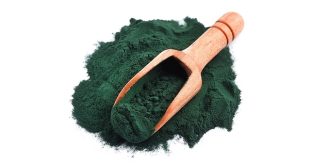Eating a balanced diet will allow people to get the correct amount of vitamins and minerals required for the body. However, many individuals don’t get enough nutrition for the body through their diet, which necessitates them to add supplements. Nowadays, individuals use supplements to acquire the suggested daily allowance of vitamins and minerals for a healthy body.
Natural vitamins are essential to break down macronutrients, including carbohydrates, proteins and fat. And as per the findings in 2014, more than eight million people in Australia purchased vitamins, minerals and supplements. Today, the numbers have increased prominently, and you can consider buying quality vitamin supplements to lead a healthy lifestyle. As such, check out the below list of vital vitamins and minerals that your body requires daily.
- Vitamin A
Vitamin A is used to address fat-soluble compounds highly essential for human health. From maintaining healthy vision to normalising the immune system’s function, they are vital for various processes in the human body. Meanwhile, the vitamin A requirement for men is around 900 mcg, and women need 700 mcg daily.
- Vitamin B
The Vitamin B group consists of eight nutrients, and each of them has a unique role in keeping the body healthy. Meanwhile, many companies promote flour, cereals, bread and pasta as the ideal choice to reduce vitamin B deficiency. These natural vitamins are used to turn food into energy; apart from this function, vitamin B helps to maintain normal brain function, metabolism, and blood cell production. The risk of stroke and heart disease is also reduced when your vitamin B intake is enough for the body.
- Vitamin C
Vitamin C is crucial in promoting healthy tissue growth, and you can find them in various fruits or vegetables. Vitamin C protects against cell damage and helps make collagen for the body. And when you consume vitamin c supplements, it will be helpful to maintain skin and strengthen bones and teeth. Above all, vitamin C will enhance iron absorption in people with iron deficiency.
- Vitamin D
Vitamin D deficiency is a usual problem in most individuals, and checking the levels of natural vitamins in your body might nudge the doctor to prescribe Vitamin D supplements due to the deficiency. So, you can receive Vitamin D from sun exposure, milk or cereals. In the meantime, children and adults need 15 micrograms of Vitamin D, whereas people over 70 need 20 micrograms on a daily basis.
- Vitamin E
Vitamin E is also crucial for the human body, and individuals should get at least 15 milligrams of daily dose. You can get vitamin E by including spinach, avocado, seeds, nuts and whole grains in your diet. Vitamin E can also reduce the risk of cancer, heart disease and Alzheimer’s.
- Vitamin K
Vitamin K is crucial to keep your bones healthy, and women need 90 micrograms of this vitamin daily. Men should get a minimum of 129 micrograms of Vitamin K, which is found in leafy green vegetables.
These are the crucial vitamins that people should consume every day, while the required daily allowance of vitamins and minerals differs from one person to another. As such, you can measure the RDA differently, but milligrams and micrograms are the standard measurements.
You may consult a healthcare provider beforehand if you want to include vitamin supplements in your diet. People already using medications should also confirm that the supplements don’t interact with any medicines. And when buying the supplements, ensure that you choose a reliable drugstore. There are many counterfeit pharmacies (especially online), so it is better to check the authenticity before purchasing vitamin supplements.
 BESTCITYTRIPS
BESTCITYTRIPS




